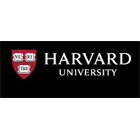A major strength of the graduate program in Germanic Languages and Literatures is its flexibility. While the focus is on German literature and cultural studies, students often include comparative literature, art, philosophy, film studies, musicology, and history of science in their coursework and dissertation. Under the guidance of the director of graduate studies, students develop a plan of study that aims, on the one hand, for broad general knowledge of the field as a whole and, on the other, for special emphases of their own. Often, dissertation topics emerge from seminar papers, in addition, preparation for the PhD general exam is specifically geared toward developing expertise in a period and a genre. We also offer older Germanic languages'such as Old Norse, Old High German, and Gothicas well as courses on specific aspects of the medieval period. A doctoral program in the older languages is available, which draws on resources in related disciplines such as English and medieval history. Teaching is required for the PhD degree, not only because sound training and practice are essential for a career in higher education, but also because it provides transferable skills in many other careers for which a PhD may be helpful. Graduate students normally begin teaching in their third year of study. New teachers take a course in foreign language pedagogy, and all graduate students involved in language teaching profit from the guidance of the language program coordinator. Opportunities are provided to teach elementary and intermediate language classes, where the graduate student is responsible for the entire weekly instruction of a class. Many of our graduate students assist in high-enrollment courses on literature, film, thought, and culture given by members of the department or professors in related departments, in such courses, the graduate student leads a weekly discussion group under the direction of the course head. Graduate students may also participate as teaching fellows in the undergraduate Program in General Education, again as leaders of small-group discussion sections that accompany lectures given by a professor.






